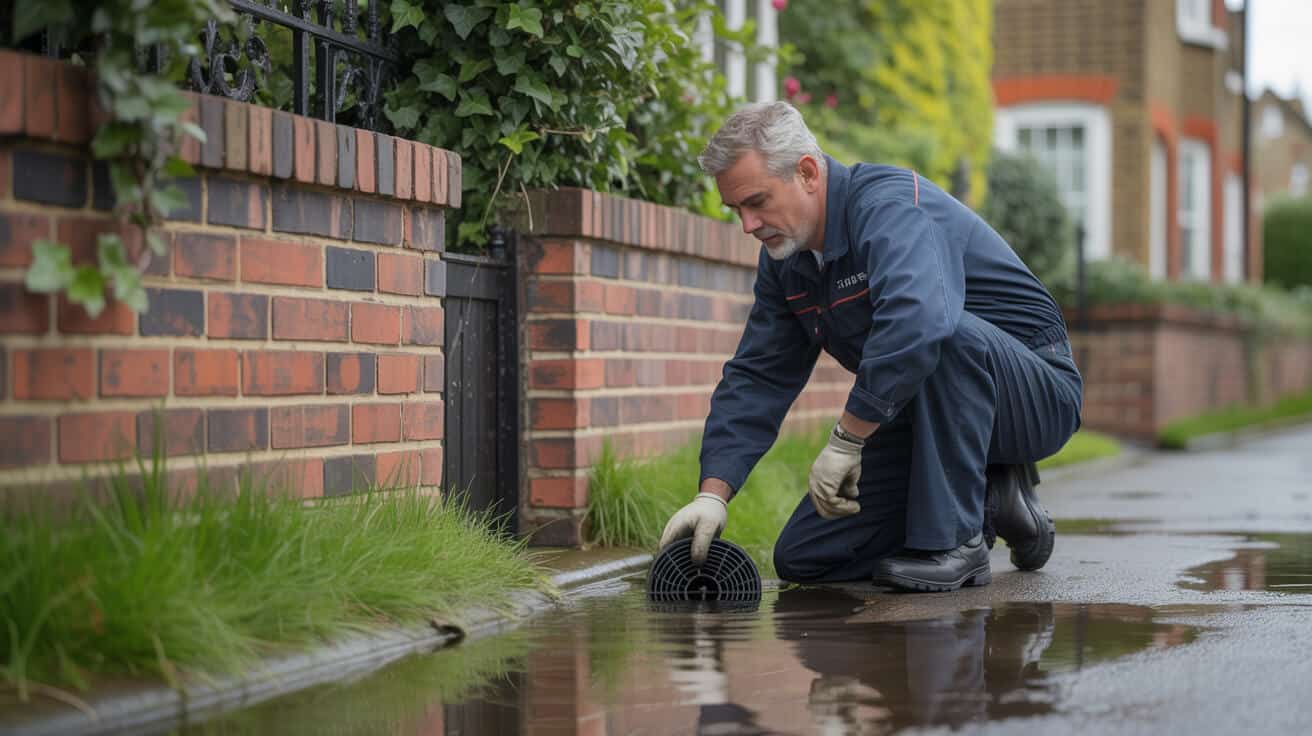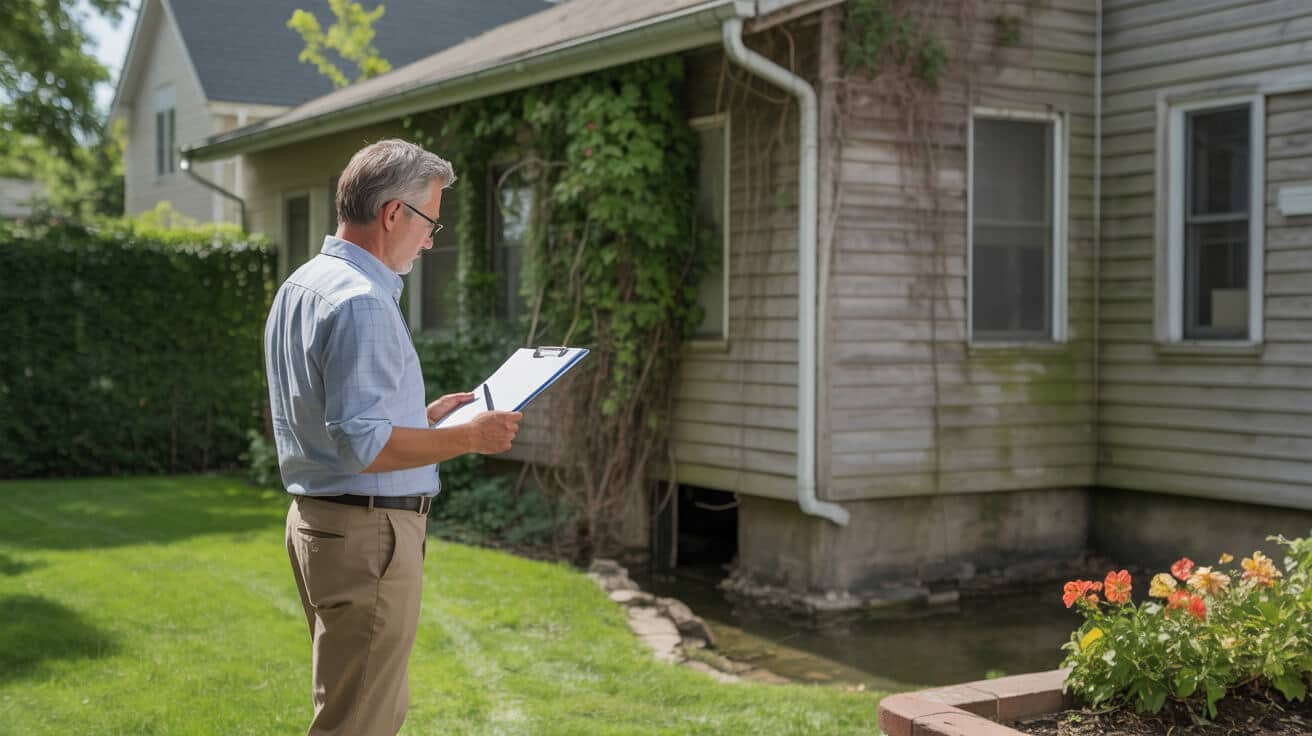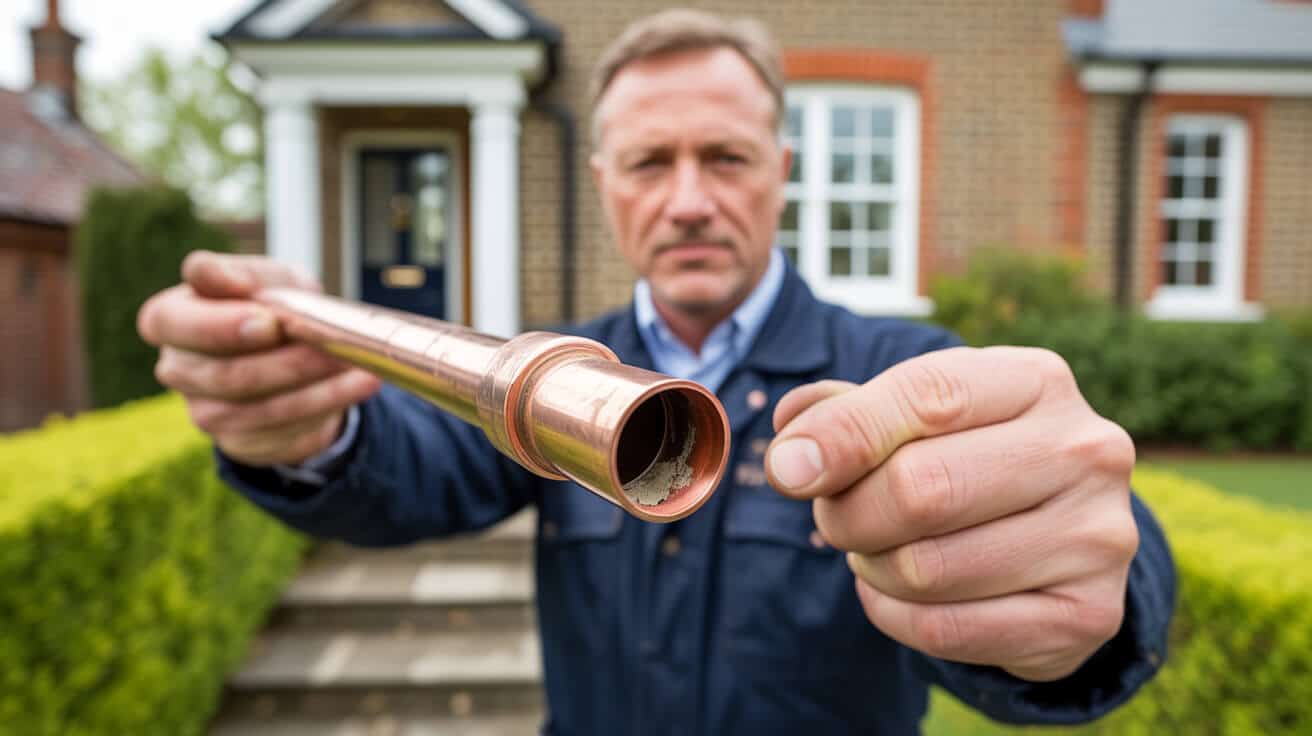 Gas Safety Certificate (CP12) Cost Guide What to Expect in The Uk
Gas Safety Certificate (CP12) Cost Guide What to Expect in The Uk

How Does a Gas Safety Certificate (CP12) Actually Protect Landlords, Agents, and Property Owners?
A Gas Safety Certificate (CP12) isn’t just another box to tick—it’s the official record that proves every gas appliance and flue in your property has been professionally checked and approved for safety within the last 12 months. In the UK, it’s not optional. With one document, you’re fulfilling your legal duty, shielding your tenants from risk, protecting your income stream, and standing on solid ground if regulators or insurers come knocking.
A valid CP12 is more than paperwork—it’s your rental operation’s real ‘safety net.’
If you’re a landlord, letting agent, property manager, block owner, or representing a local authority, you need a current, signed CP12 for every property that has a gas supply. There are no shortcuts—no loopholes for short-term lets, roommate agreements, portfolio scale, or downtime between tenants. The law triggers the instant the property is let, regardless of size or tenancy type.
The certificate must be issued by a Gas Safe Registered engineer—never a general handyman or even a non-registered plumber. Skipping this step invalidates your compliance, blocks eviction rights, and can expose you to unlimited fines and denied insurance (Gas Safety Regs 1998 & Shelter 2024).
Small mistakes matter: an expired certificate, forgotten renewal, or misplaced record can open the door to regulatory action, damage your professional reputation, sour relationships with tenants (or investors), and even shut down your ability to legally let the property.
Landlords and managing agents aren’t just ticking boxes—they’re preserving reputation, preventing costly penalties, and staying in the good graces of both tenants and local authorities.
What Practical Steps Keep You Legally Compliant with CP12 Gas Safety?

Compliance with CP12 isn’t a one-off job; it’s a living process that rewards those who systematise, automate, and document every action. The law is simple but strict: Every property must have a new inspection every 12 months—a continuous cycle with zero “grace period.”
Essential CP12 tasks for landlords and property managers
- Keep each CP12 certificate for at least two years – stored digitally or as a clean hardcopy.
- Give tenants a fresh copy within 28 days of each new inspection.
- Ensure new tenants receive their latest CP12 before move-in.
- Maintain easy access to all records in case of audits or insurance queries—any gap is a liability.
True compliance doesn’t just rely on memories—it depends on bulletproof scheduling, reminders, and clean documentation.
For agents and portfolio landlords, the risks multiply. More units means more inspection dates, risk of calendar drift, or tenants failing to grant access. The law does not care about the size of your operation—miss it, and you’re out of compliance on every property.
Common pitfalls include:
- Overlapping or missed inspection schedules
- New appliances fitted without being added to the current CP12
- Relying on email chains or old paperwork instead of secure, centralised digital storage
- Emergency jobs that skip a new certificate issue
Professional service providers, such as Plumbers 4U, mitigate these headaches: they automate reminders, keep digital backups, and handle admin—even intervening if access issues threaten compliance.
Home-grown systems (digital folders, spreadsheets, specialist apps) are essential if you self-manage. The best landlords treat documentation as a non-negotiable—your first and last line of defence.
Why Only a Gas Safe Engineer Can Legally Inspect and Issue a CP12
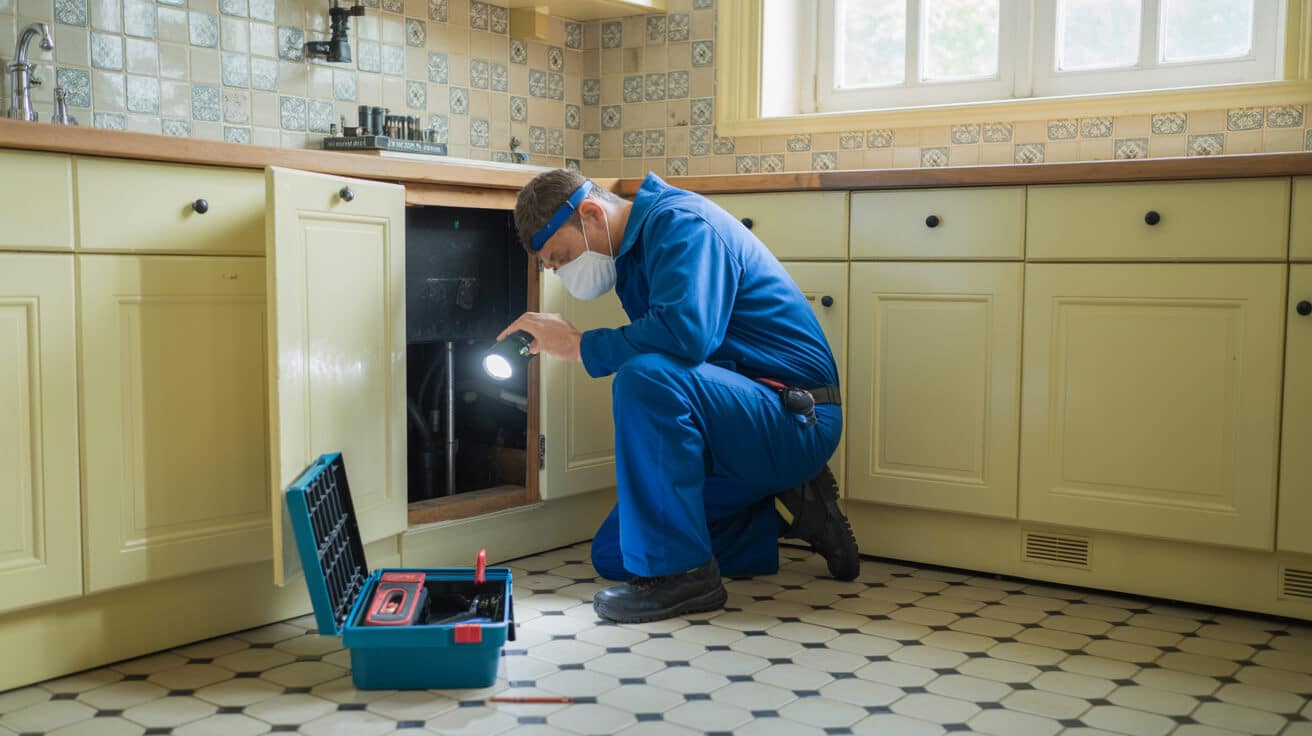
Law and insurance both agree: the only person authorised to issue and sign off a CP12 is a currently registered Gas Safe engineer. Everything else is irrelevant—using a “handyman” or general plumber is, without exception, invalid.
Here’s why the rules are tight:
- The Gas Safe Register is the UK’s official authority for gas work. No registration, no legal right to inspect.
- The engineer must display their Gas Safe ID card—failure to check means risking prosecution and void insurance.
- Some specialist items (e.g., unvented cylinders) also require G3 certification—*not every Gas Safe engineer is qualified for every appliance*.
A Gas Safe number is your legal firewall—it’s your only real proof that a professional did the job.
You can instantly verify any engineer with the Gas Safe Register’s public tool. For large landlords or agents, every appointment should be cross-checked—contracting out to unverified engineers is a fast track to systemic compliance failures, portfolio risk, and loss of credibility with both regulators and tenants.
Fines for breach aren’t notional. Unlimited penalties and possible criminal action are on the table for repeat or severe cases. Insurance cover? Gone, unless the certificate, at the time of claim, was signed off properly.
Top firms like Plumbers 4U double-check all certifications and proactively update clients when gas safety law changes—making sure you never fall foul of new obligations.
What Actually Determines the Cost of a Gas Safety Certificate (CP12) in the UK?
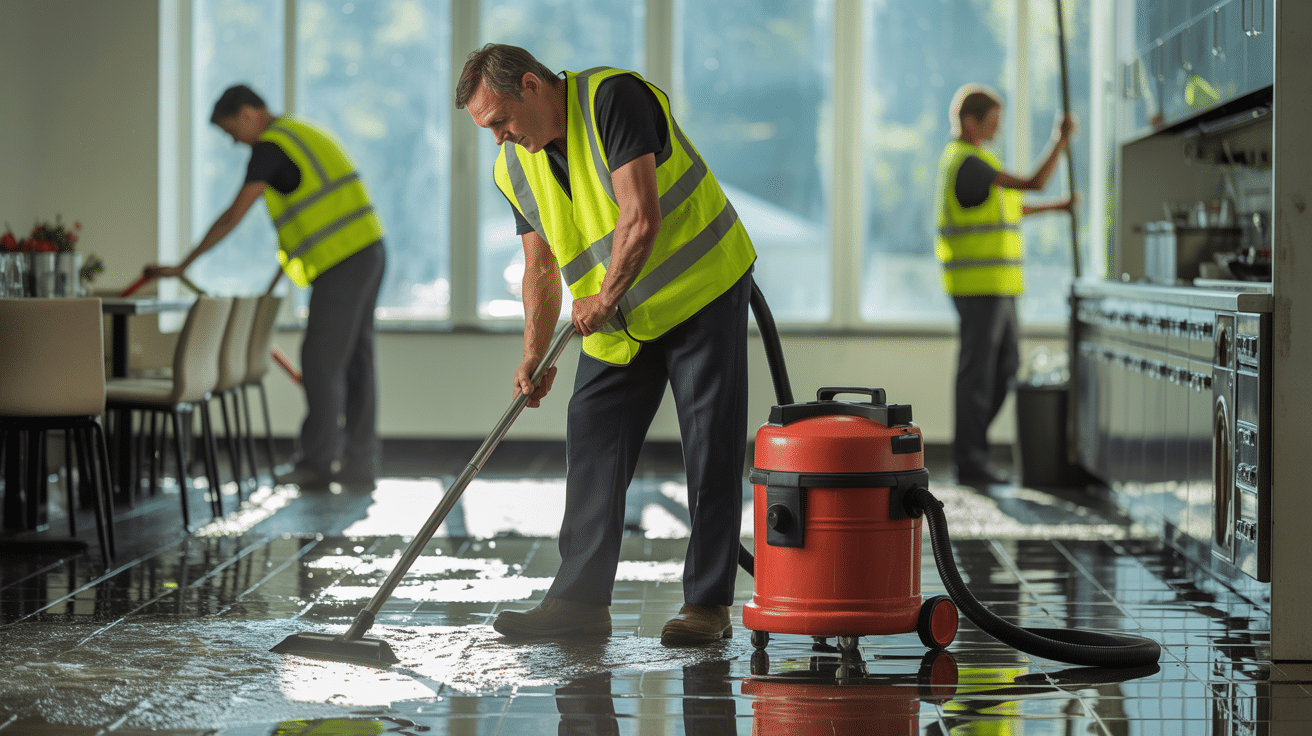
The base price for a Gas Safety Certificate (CP12) typically runs £60–£100 per property, but several specific factors push that cost up or down.
| Cost Driver | Normal Range | How to Control the Cost |
|---|---|---|
| Standard CP12 | £60 – £100 | Schedule early off-peak |
| Each extra appliance | +£10–£20 | Bundle all checks in one visit |
| London/SE surcharge | +10–20% | Book with a local specialist |
| Multi-property deal | –£10–£25/unit | Group book, one day |
| Add service/boiler | –£20–£40 total | Combine with annual service |
Clear, up-front quotes show every appliance and every fee—no ambiguity, fewer disputes.
Additional costs can appear for urgent bookings (add £30–£50), failed access or missed appointments (usually £25–£50 reattendance), VAT (if not already included), and out-of-area surcharges. Always check that the quote covers every appliance, and clarify whether the price is “all-in” or likely to grow after last-minute admin, upload, or travel fees.
Established providers (like Plumbers 4U) have zero surprise costs—they publish all prices, line up the full service list, and clarify document turnaround so you’re never chasing paperwork or paying out of pocket for hidden extras.
Can Large Landlords and Managing Agents Really Cut Costs and Hassle on CP12 Compliance?

Managing multiple properties isn’t just more work—it’s a test of process, scheduling, and admin discipline. But with the right provider, the economics flip in your favour. How?
Real advantages for scaling compliance
- Book all units in a portfolio “compliance window”—saving £10–£25 per certificate.
- One point of contact streamlines admin and minimises comms noise.
- Digital e-certificates land in your management dashboard for instant proof, audits, tenant onboarding, or council checks.
Less chasing, bulk discounts, and a compliance process you can scale safely.
The key: plan for a batch inspection week annually—don’t rely on rolling, piecemeal appointments. Best-in-class suppliers (Plumbers 4U included) will issue a comprehensive, line-by-line quote for every property, every appliance, and every additional service right at the start.
Avoid so-called “bulk discounts” that hide fine print—true portfolio pricing is transparent, with every possible add-on surfaced before you sign.
What Are the Most Common Hidden Charges or Cost Pitfalls in CP12 Certification?

One of the most frequent triggers for client complaints isn’t the actual inspection—it’s hidden costs. Some providers bait low up-front prices, then load on fees later. Transparency is non-negotiable.
Watch for these hidden CP12 charges
- Each additional appliance (unlisted at booking) can add £10–£20
- Reappointment for failed tenant access: £25–£50 per call
- Out-of-hours jobs: +£30–£50 extra
- Urban centre or London surcharges (highest in peak season)
- “Admin” or “digital delivery” fees (sometimes tacked on late)
- VAT added at invoice if omitted from initial quote
If the price list isn’t specific—challenge it. One vague ‘service line’ often hides more than it reveals.
How to protect yourself:
- Insist on an itemised quote in writing (not just a headline figure)
- Clarify the count of appliances checked per property
- Get provider policy for missed access and re-visits
- Agree on certificate delivery timescales and method, before the job starts
Genuine full-service teams like Plumbers 4U keep their pricing up front and process-driven, minimising debate and giving you total control over compliance spend.
Are Digital Certificate Systems Really Essential for Modern Portfolio Landlords and Agents?
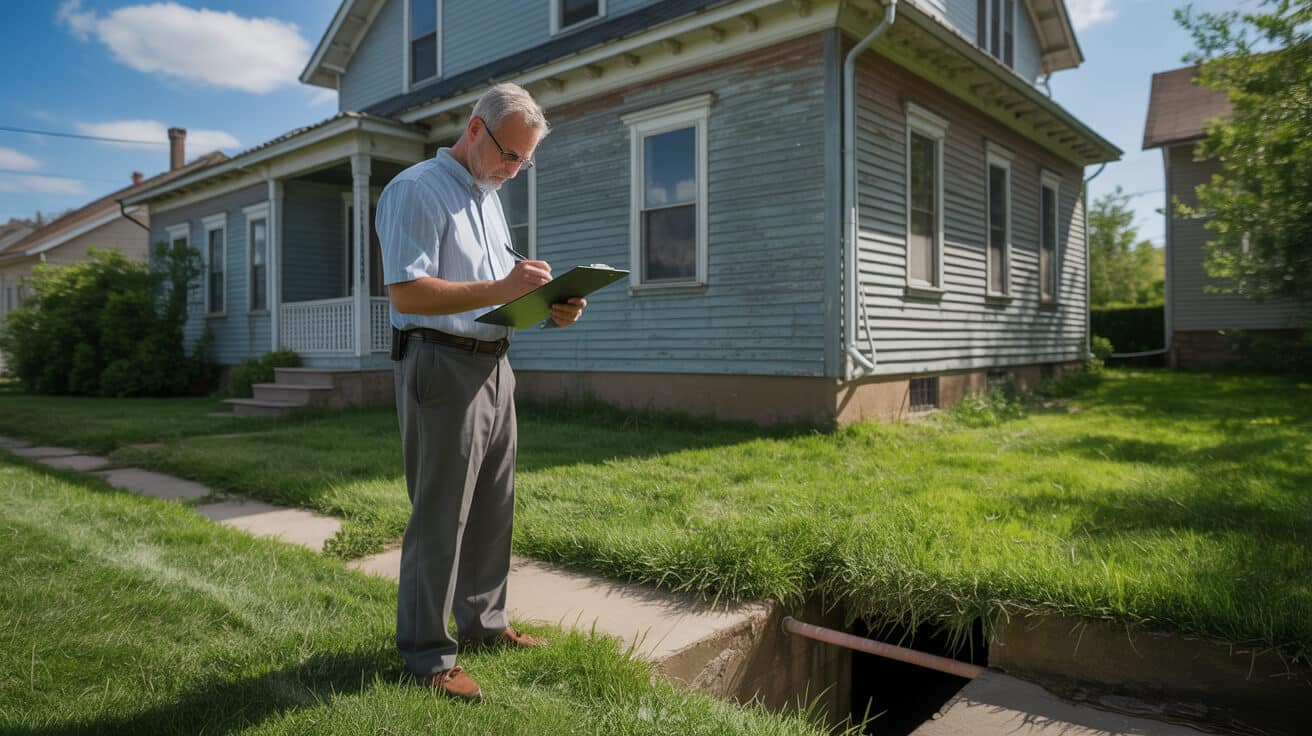
In a word: yes. For landlord, agent, or block manager with more than two properties (or frequent tenant changeovers), digital CP12 management is what determines audit success or failure.
The biggest compliance gaps don’t come from unsafe appliances—but from vanished or misfiled certificates.
Gold-standard CP12 record-keeping:
- Every certificate stored digitally (PDF, CRM, secure drive) for at least two years
- Automated reminders for expiry—eliminate calendar drift
- Quick access to certificates for each property, ready for agent, regulator, or tenant
- Copies sent directly to tenants—on time with every new check
Old-school paper files or scattered emails simply don’t cut it anymore. Plumbers 4U eliminates this pain point—automatic digital copies for every job, direct delivery to your preferred dashboard, and hands-off reminders when renewal cycles approach.
For letting and managing agents, especially those handling several properties (or working under council contract), unified records across properties are critical. One missing CP12 during a Section 21 action or insurance claim can derail proceedings and trigger regulatory audit. Cloud-based systems, multi-folder backup, and automated alerts are simply best practice now.
What Happens If a CP12 Expires, Fails, or Gets Missed Entirely? (And Why Does It Matter?)
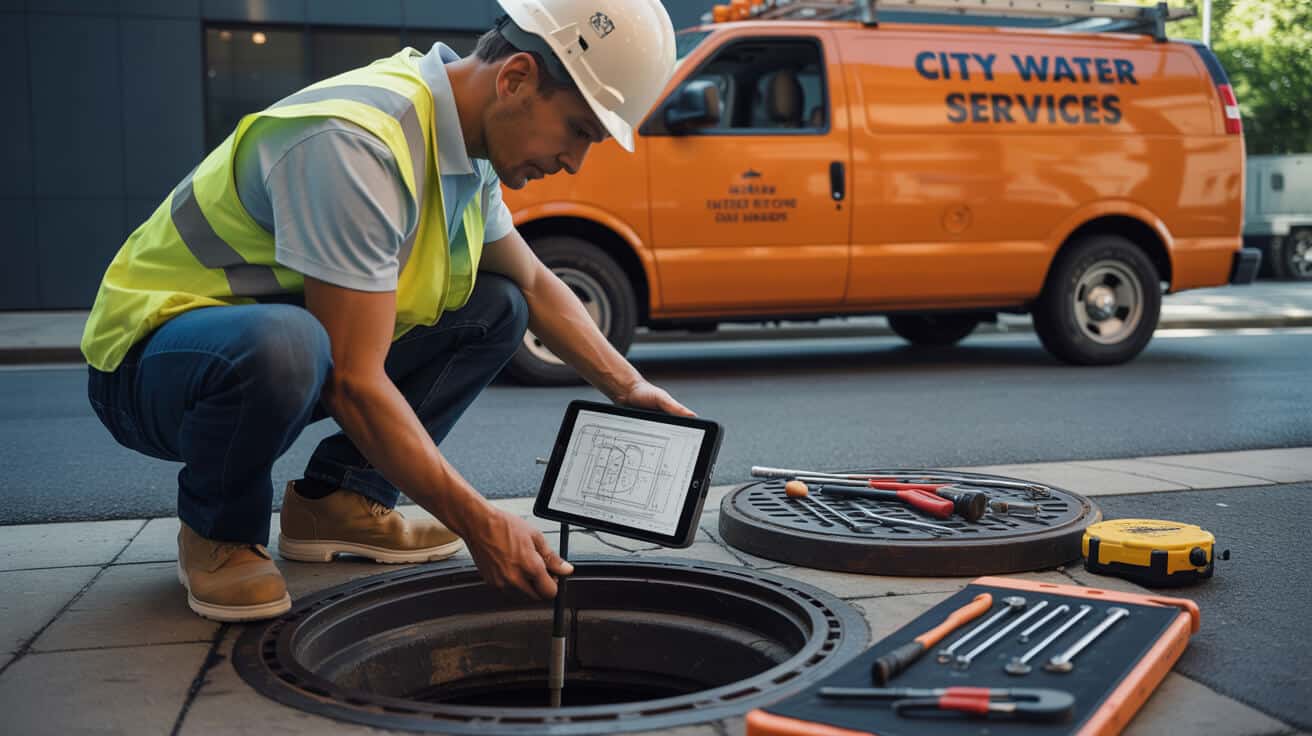
Missed, lapsed, or failed CP12s are not minor paperwork slips—they are among the leading causes of legal, financial, and operational disaster for landlords, agents, and commercial property owners. The consequences extend far beyond a gentle reminder from the council or an apologetic tenant email.
- Serving Section 21 eviction notices? Your right is instantly lost the moment a certificate expires or drops out of sequence.
- Large-scale failures (multiple uninspected units) can trigger criminal charges and remove your right to manage property.
- Insurance? If you claim and there’s no current, valid CP12, your provider may deny payout—even for unrelated incidents.
The cost of a missed CP12? Financial loss, failed possession actions, lost management contracts, and permanent damage to your professional track record.
A failed inspection (often flagged by a red “do not use” label on an appliance) must be rectified immediately: either repair and retest, or decommission the appliance with full documentation—shared to tenants and logged in your digital archive. Letting even a single certificate elapse often escalates: more frequent audits, fines, and loss of regulatory standing for agencies and corporate landlords.
Effective property managers preempt the risk—renewing in advance, booking access with tenants early, and keeping a trusted provider on standby for surprise issues or high-turnover periods. Plumbers 4U excels in this: proactive reminders and bulk scheduling close the gap before it becomes a problem.
What Makes Plumbers 4U the Trusted Choice for CP12 Gas Safety in the UK’s Rental Sector?
Plumbers 4U transforms gas compliance from a perpetual headache into a business advantage for landlords, agents, and property managers at every scale.
Here’s why the industry trusts them:
- End-to-end digital record-keeping: means no more lost paperwork or expired certificates derailing your rental operation.
- Transparent quotes: —every appliance, every potential fee, every term disclosed from the outset.
- Bulk bookings and portfolio discounts: that support scaling, with admin and documentation handled start-to-finish.
- Only Gas Safe and G3-qualified engineers: —keeping compliance watertight, even for specialist systems.
- e-Certificates same or next day: —perfect for urgency, audit response, and rapid tenant onboarding.
- Automated compliance checks and expiry reminders: —turn scheduled chaos into predictability.
- Audit trail delivered: —your documentation can stand up to any council, insurer, or client review without stress.
Modern compliance is a process, not a scramble—and Plumbers 4U makes it seamless at every stage.
The core distinction? Most breakdowns in compliance come from admin, documentation, or poor scheduling—not from technical gas dangers themselves. Plumbers 4U delivers the paperwork, reminders, and speedy service so you’re never scrambling to prove legality when the stakes are highest.
Book today for a digital quote, portfolio-tailored advice, and ongoing support that scales with your ambition—because in modern property management, compliance equals peace of mind and professional credibility.
Frequently Asked Questions
What triggers unexpected Gas Safety Certificate (CP12) expenses, and how can landlords or managers command total cost control?
Many property owners believe the price for a Gas Safety Certificate is “fixed”—but those who’ve managed multiple homes or commercial units know the reality is anything but. The true cost pivots on factors like the number of gas appliances on-site, regional engineer rates (with metropolitan surges in London or the South East), last-minute scheduling, and admin variables as basic as lost keys or rescheduled visits. What starts as a £60 callout can quickly snowball to £120 or more per address once hob or gas fire checks, urgent requests, awkward access, or supplementary admin fees surface—even more if the engineer’s scope of work wasn’t crystal clear from the start.
Hidden fees breed where paperwork isn’t digital and properties aren’t managed as a portfolio—clarity up front saves a fortune in surprises.
How can you shield your cashflow from avoidable charges?
- Create an appliance log: Before booking, inventory every boiler, gas fire, hob, and flue. Engineers charge per additional unit.
- Centralise renewals: Cluster properties and book all safety checks within the same time window—engineers often discount block appointments, and CP12s line up for future years.
- Review terms, don’t assume: Confirm what’s included—does that “flat rate” cover digital certificate delivery, admin, and appliance re-checks?
- Clarify failed access or return visit policies.: Fees stack fast if keys can’t be found or tenants aren’t prepped for the engineer’s arrival.
- Always verify Gas Safe credentials: A “cheap” non-certified engineer can invalidate the paperwork—undoing your budget and risking legal exposure.
- Opt for digital providers: Digital certificates and automated reminders curb admin time and make audits a click away.
Landlords and managers who treat compliance as a recurring admin process—not an annual panic—routinely pay less, whatever the property type. Plumbers 4U sets the market bar for transparent, all-in pricing, digital paperwork, and portfolio renewal logistics so you remain compliant and in control.
CP12 cost breakdown you can actually plan around
| Driver | Typical Price Impact |
|---|---|
| First boiler check | £60–£100 |
| Each extra gas appliance | +£10–£20 |
| Off-hours callout (Sat/p.m.) | +£25–£50 |
| Bulk booking (portfolio) | –£10–£25 per cert |
| Missed slot/admin/revisit fee | Up to full call-out rate |
Lock down predictable admin and zero hidden charges for your properties—let Plumbers 4U handle reminders, bulk booking, and digital renewals so you never scramble again.
Who takes the legal heat for Gas Safety Certificate lapses—and how exposed are landlords, agents, or managers?
The Gas Safety (Installation and Use) Regulations 1998 crystalise compliance: landlords must commission annual CP12s for every rental where gas appliances, flues, or pipework are present. But the real world runs on blurry lines—managing and letting agents: if you arrange repairs, maintain keys, or collect rents, you’re equally on the hook for missed or lapsed certificates. Social housing authorities, commercial landlords, housing associations, and even hands-off investors face the same hard legal bar. The law never distinguishes between a small portfolio and a sprawling city block—risk radiates outward from every single missed CP12.
Failing to provide a valid CP12 isn’t just a fine risk—it’s the fastest way to lose rent rights, insurance cover, and tenant trust in one go.
How does the compliance trail break down?
- Private and portfolio landlords: Every UK property, every single year.
- Managing or letting agents: The moment you assume responsibility for property access or repairs, you share liability for up-to-date certificates.
- Commercial property owners: Shops and units with gas installations are not exempt.
- Social housing, local authorities: Public sector properties demand the same standards as private stock.
- Homeowners: No legal CP12 mandate, but a safety check is often required for insurance, remortgage, or property sale processes.
Slippage on even a single property doesn’t just risk a slap on the wrist. You may lose rights to reclaim unpaid rent, face insurance claim rejections, or find yourself blacklisted as an unreliable manager. Council penalties or even criminal charges for the most serious breaches are blunt tools designed for maximum deterrent.
Put compliance shields around every address: Plumbers 4U not only logs and audits every certificate renewal, but provides redundancy through digital records and regular reminders—keeping you legally airtight, not just barely above water.
How can landlords and agents engineer cost-efficient CP12 renewal across portfolios or complex property mixes?
Systematic compliance isn’t just about paperwork—it’s about admin choreography. The difference between a last-minute panic and calm, ultra-cheap renewals is a calendar, an inventory sheet, and a provider who thinks like an asset manager. Lean operators see compliance as annual portfolio hygiene: bulk block dates, digital reminders, all-in quotes, and a singular admin sequence rather than dozens of unlinked headaches.
Act like you own a business, not just property—streamlined gas compliance is an investment in time, cashflow, and reputation, not just a tick-box.
What practical steps drive lower per-property costs?
- Centralise expiry dates: Book every property in a set week per year; portfolio discounts are unlocked only when engineers can optimise their day.
- Bundle by appliance type: Listing all hobs, fires, and boilers in advance guarantees single-visit rates—extra items are far cheaper when spotted early.
- Appoint a compliance lead: Larger operations benefit from a single team member—or an outsourced admin—chasing the CP12 trail and keeping records up to date.
- Insist on cloud certificates: Never again lose proof; digital-first providers bake in online portals, automated backups, and instant tenant/landlord access.
- Negotiate proactively: Three or more addresses? Providers often reward you with custom pricing, faster turnarounds, and VIP support.
- Pre-check documentation before an engineer calls: Common fail-points are mix-ups over addresses, forgotten keys, or unclear scope (e.g., that “one old fire” in a hidden back room).
CP12 portfolio playbook for sharper admin and savings
| Move | Impact |
|---|---|
| Block bookings | Cut per-cert cost, speed admin |
| Complete inventory list | Eliminates on-site surprises |
| Single provider, one portal | Consolidated records, easy audits |
| Digital reminders | Zero last-minute lapses |
| Fixed all-in pricing | No end-of-month admin shocks |
Outsource your CP12 admin engine to Plumbers 4U—reclaim control, unlock property-wide discounts, and future-proof every document with secure, searchable digital records.
What risks do you face by choosing the cheapest CP12 provider—and how can you verify airtight legality before booking?
It’s tempting to view gas certificates as commoditised—grab the lowest quote and move on. But the marketplace is peppered with “engineers” and one-man bands who either lack Gas Safe credentials or hide critical exclusions in the small print. Every year, landlords and letting agents lose tenancies, insurance cover, or council approval because essential appliances weren’t listed, checks were flimsily documented, or a certificate wasn’t digitally accessible when needed.
The quickest savings are rarely the cheapest: an invalid certificate can cost you months of rent, legal headaches, or getting flagged in council databases.
How to spot and avoid dangerous cost-cutting traps?
- Check the Gas Safe Register: Never rely on a logo—enter the engineer’s name or ID at the registry. Non-registered “certs” are landfill or legal dynamite.
- Demand a line-by-line quote: You want to see every appliance, access, admin fee, and any add-on costs for failed appointments or postage.
- Verify digital delivery & archiving: Paper certificates are a ticking liability—a lost proof means start all over, with fines compounding.
- Don’t fall for generic “per-visit” pricing: Double-check every address, appliance, and tenant is covered—missing a detail on paperwork nullifies protection.
- Ask for a protocol if access fails: Extra engineer visits and weekend callouts must be pre-costed.
Undercutting CP12s: Why “bargain” jobs usually backfire
- Disputed or missing certificates delay move-ins, and void agent/landlord reputation.
- Gas Safe audits or letting agent spot-checks fail, forcing repeat work at full market rates.
- Emergency or out-of-hours re-inspections strip any initial savings and eat up admin time.
- Tenants notice cut corners, which can sharpen their own claims or insurance requests in the event of a dispute.
Working with Plumbers 4U ensures all documentation is engineer-verified, digitally archived, and audit-ready, protecting landlords, managers, and tenants with a track record regulators trust.
What are the rapid-fire consequences of missing legal CP12 compliance deadlines for UK property professionals?
Failing to keep up with CP12 cycles puts your financials, legal standing, and day-to-day operations at immediate risk. Local councils, tenant reps, and insurance providers are no longer “forgiving” grey areas—deadline lapses now instantly threaten portfolios with unlimited fines, legal lockout, and insurance denials. Every day a certificate is out of date, the penalties and opportunity costs escalate.
A single lapse invites the storm: lost rent, insurance rejections, and tenant claims that spiral far beyond a certificate’s up-front cost.
What’s on the line if you fall behind?
- Fines are unlimited: per missed, expired, or unissued certificate—multiplied across every affected property in a portfolio.
- Section 21 powers revoked: Landlords can’t lawfully evict tenants without showing up-to-date, valid paperwork for each property.
- Insurance kicks back claims: Gas or carbon monoxide incidents in a non-compliant property often mean zero payout—even if premiums are paid up.
- Liability for harm: The worst case? Civil or criminal cases for injury or death from gas-related faults.
- Council and renter blacklists: Persistent non-compliers lose preferred contracts, tenant referrals, and even access to public sector tenders.
What does real tenant risk look like?
Tenants aren’t just at higher risk for leaks or gas faults—their ability to safely occupy a property is compromised. Landlords who let CP12 paperwork lapse routinely report more service calls, rental arrears, and formal complaints.
Refresh your CP12s faster than your risks—Plumbers 4U automates reminders, bulk bookings, and record-keeping, converting compliance into a strategic asset, not a scramble.
How can landlords, agents, and portfolio owners streamline CP12 compliance and slash admin by going digital?
Chasing paper records or relying on last-minute phone calls is a relic of old property management. Modern portfolios are switching to fully digital CP12 cycles—not just for cost tracking, but to trigger reminders, enable instant audits, and simplify tenant or council documentation requests. With one click, every property and appliance can be checked, logged, scheduled, and certified.
Legacy admin slows you down—fast, digital compliance is now table stakes for any serious portfolio manager.
What does a digitally mature CP12 compliance engine look like?
- One account, all sites covered: A single login, payment cycle, and certificate vault for every property, saving hours on paperwork.
- Instant, automated reminders: Never again miss a deadline; systems track when renewals are due and nudge you (or your admin) to book.
- Same-day certificate delivery: Engineers upload proofs directly; no risk of “lost in the post” or admin bottlenecks.
- Audit-ready records: Digital vaults keep every certificate accessible for letting agents, councils, or insurer spot-checks.
- Cloud-based access rights: Tenants, managing agents, or legal teams can retrieve the right certificate at a moment’s notice—no more headaches.
- Tailored, fixed fee structures: True all-in-one pricing—no marketing tricks, no add-on admin bills.
Digital CP12 vs. old-school processes: a quick contrast
| Method | Result |
|---|---|
| Digital-first provider | Zero missed deadlines, instant records |
| Manual paperwork | Frequent lapses, duplicated admin |
| Bulk scheduling | Lower pricing, less disruption |
| Single portal access | Fast proof, seamless compliance |
Switch to fully online CP12 management with Plumbers 4U—get a custom portal, portfolio-wide discounts, and 24/7 document access, making compliance, auditing, and admin coordination as painless as booking a train ticket.

